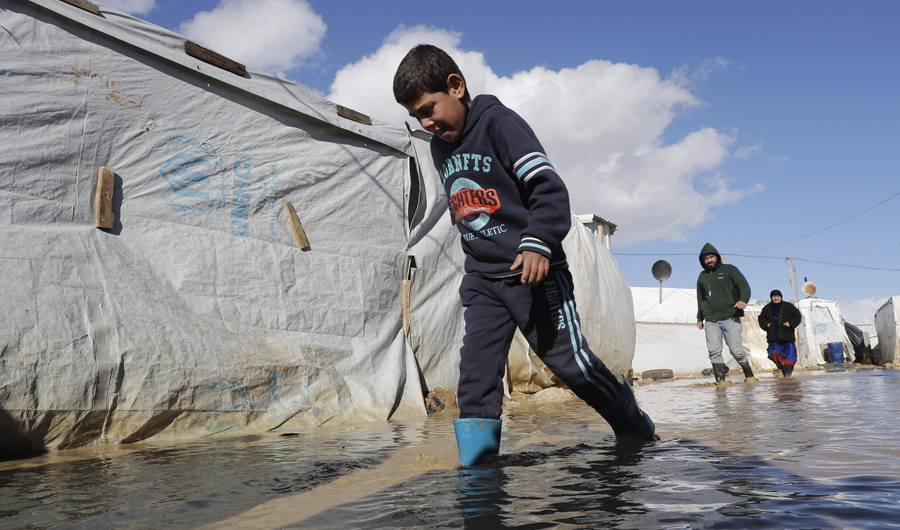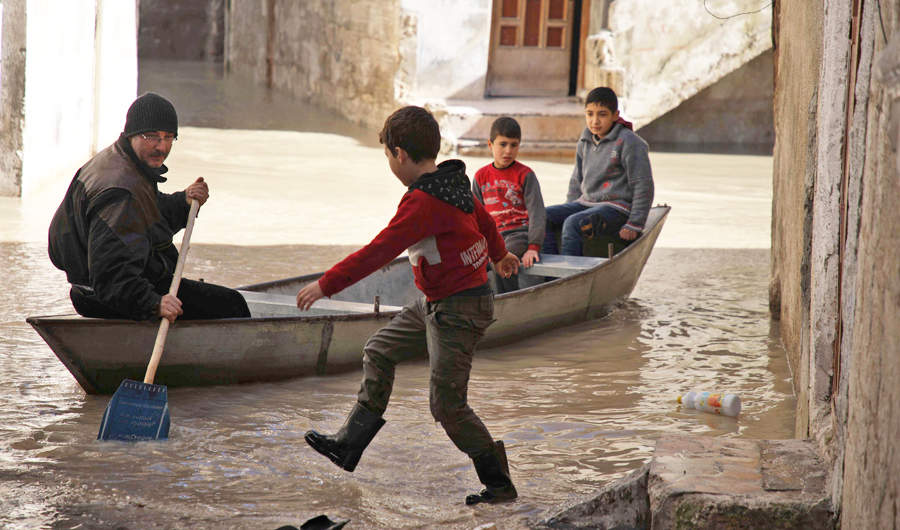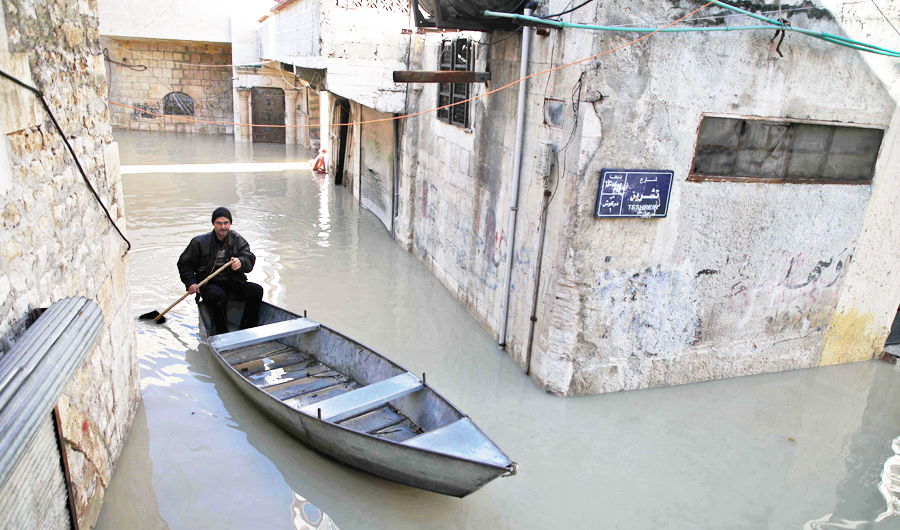MANBIJ: Charred walls, shattered windows, uncooked kebabs still on the counter — the blast that hit US forces at this small restaurant in northern Syria has left residents fearful for the future.
Wednesday’s suicide bombing, claimed by Daesh, was the deadliest to hit US troops since they deployed to Syria in 2014.
Nineteen people, including four Americans, were killed in the attack on the grill house in the central market of the flashpoint northern town of Manbij.
“We come to the market but we are afraid. We go to work and we are afraid… we don’t know what could happen,” says Jomaa Al-Qassem, eyeing the shops from his car along with his three-year-old son.
In front of the blackened storefront, armed security forces hustle curious onlookers away and are quick to prevent them from taking photos with their cellphones.
Behind its twisted metal exterior, a clump of raw red meat lies abandoned on a counter, covered with dust. Tables and cookware from the kitchen have been twisted into a tangled mess on the floor.
Run by a Washington-backed town council since the US-led coalition and its ground partners pushed out militants in 2016, Manbij has been a realm of relative quiet.
The town was considered sufficiently secure that a group of top US military commanders and lawmakers strolled through the same market place without body armor during a tour of the area last summer.
Next to the blast site, Abu Abdel Rahman lifts an armful of red teddy bears out of his storefront display, carefully avoiding the shattered glass.
Just meters away from the restaurant, his shop was also hit by the blast.
But the US military presence in the town has been thrown into question after President Donald Trump’s shock announcement last month that he would pull all American troops from Syria, claiming the Daesh had been “largely defeated.”
Sen. Lindsey Graham, a longtime Trump supporter who was among this summer’s visitors, has been one of the most vocal critics of the president’s decision and was in Ankara for talks with top officials on Friday.
“I was at the door of my shop and saw a fireball come out of the restaurant. Then, there were body parts on the ground,” he told AFP, a red keffiyeh headscarf wrapped around his face to help fend off the cold winter air.
The four Americans killed in the blast were two soldiers, a civilian defense department employee and a Pentagon subcontractor.
The US Defense Department has previously reported only two American personnel killed in combat in Syria, in separate incidents.
The attack came as tensions between Washington’s Syrian Kurdish ground partner and its NATO ally Turkey flare.
Ankara views the Syrian Kurdish People’s Protection Units (YPG) as a “terrorist offshoot” of the Kurdistan Workers Party (PKK), which has waged a deadly insurgency for self-rule in southeastern Turkey since 1984.
Turkish President Recep Tayyip Erdogan has threatened an all-out offensive to clear the group from its border.
At the town’s entrance, security checkpoints manned by forces of the US-backed Manbij Military Council meticulously check vehicles and the IDs of people entering and exiting the town. Regular patrols move through the streets.
But for Malek Al-Hassan, it is not enough.
The 45-year-old was in the market that day to buy books for his children.
“When the explosion happened, I don’t know how we managed to escape,” he says.
“We hope the forces will be more vigilant at the roadblocks, and that they will work hard to prevent these infiltrators from committing these acts of sabotage,” he says.
After sweeping across swathes of Syria and Iraq in 2014, the militants’ cross-border “caliphate” has been erased by multiple offensives and is now confined to a tiny embattled enclave in eastern Syria close to the Iraqi border.
But despite the stinging defeats, Daesh has proved it is still capable of carrying out deadly attacks using hideouts in the sprawling desert or sleeper cells in the towns.
One day after the blast, Naassan Dandan’s eyes well up with tears when he remembers the attack.
“I was outside when the explosion happened and was thrown to the ground,” says the man in his 40s, still clearing shards of glass from his nearby photography studio.
On the walls of his shop, child portraits he has taken throughout his career are covered in black dust.
“I saw the bodies — the dead and the wounded,” he says, as two young passers-by stop to lend a hand with the clean up.









